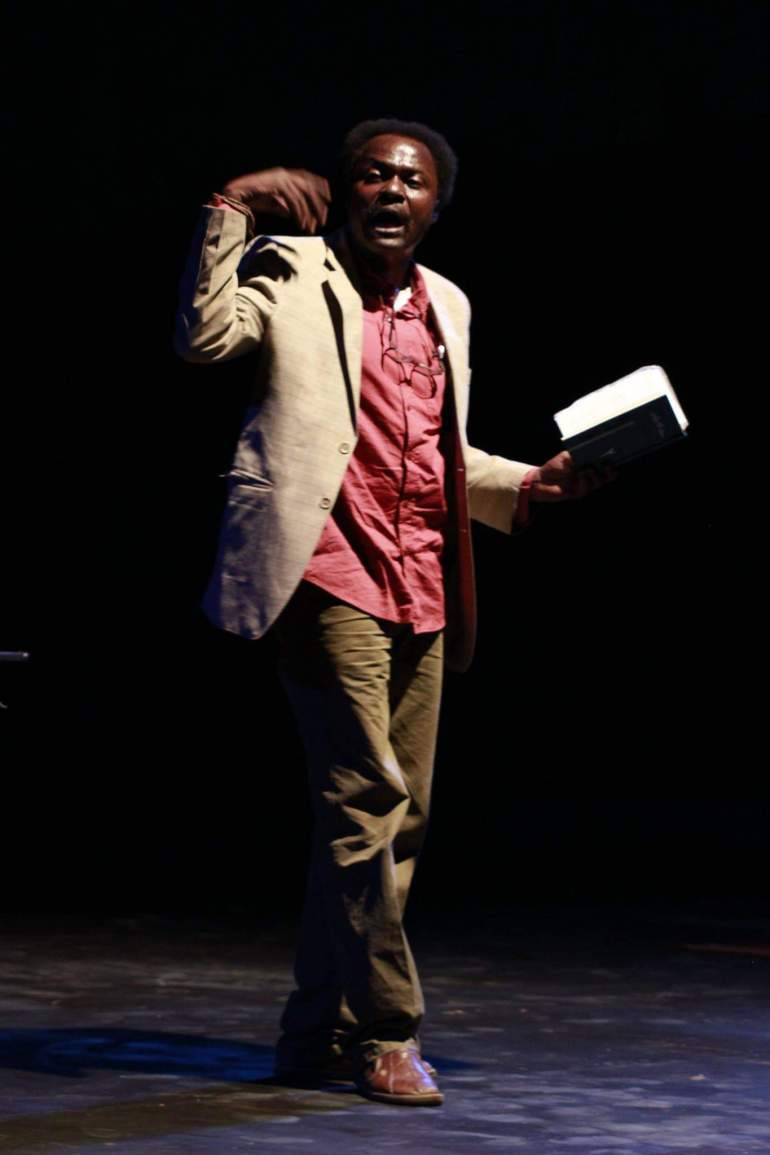The sudden departure of the Sudanese artist, Yasser Abdel-Latif Al-Tijani, last Wednesday, left a great shock in the Syrian artistic community, and social media was buzzing with publications and tweets lamenting Tijani and recalling his contributions to the drama and theater industry in Syria, describing his simple personality that left a good impression on the souls of his companions.
Al-Tijani was born in 1971 in the Sudanese city of Sennar, and because of his political positions and differences between Sudan and Egypt, he was unable to pursue his studies in either country, so he was forced to move to Syria, where he joined the Higher Institute for Theatrical Arts in Damascus, and graduated in 1993 with a batch of Syrian artists. The likes of Qasim Melh and Thankful Murtaja and others.
After his graduation, he worked as a teaching assistant as a teaching assistant for 5 years, then as a teacher of acting at the Higher Institute and several other private institutes, until 2013, when the circumstances of the war in Syria forced him to leave and return to his home country, to do several workshops there that support theatrical art in Sudan. He paved the way for him to establish an institute that brought together a segment of Sudanese youth interested in acting.
On September 30, Tijani died in a Khartoum hospital after falling into a coma following a sudden rise in blood pressure.
Yasser Al-Tijani, a phenomenon that does not recur as a Sudanese-Syrian artistic reference (social networking sites)
Sudanese of Syrian fancy
During the years of his stay in Syria, he composed and directed a number of plays, including the play “The Grooms” in 2007. He also participated as an actor in the plays “Romeo and Juliet,” “Twelfth Night,” “Shahriyar Nights,” “Bed of Didomona,” and the play. "Hamlet without Hamlet", along with a number of theater directors such as "Fayez Kazak" and "Riad Esmat" and others.
As well as in the drama, Al-Tijani played roles in a number of Syrian and Arab series, the most important of which are Spot of Light, Mirrors, Al-Marikoun, Salah Al-Din, and also Al-Zeer Salem, Al-Khawaja Abdul Qadir and Spear of Fire, as well as memories of the coming time, Al-Mahrous, Al-Horr Al-Ain, as well as Tel Ash And the magic of the East, and other dramas that are well received by the Syrian public in particular and the Arab public in general.
However, these few participations did not live up to the capabilities of Tijani, "who is distinguished by his love for acting, his belief and his obsession with theater," according to the actor, theater director Bassam Daoud, who got acquainted with Tijani when he was a student at the Higher Institute for Dramatic Arts, to participate with him later in the "Actors Preparation Workshop" and Damascus Theater Professional.
Daoud added in an exclusive interview with Al-Jazeera Net that Al-Tijani "was a distinguished actor, because he used to adopt his characters and live the most accurate details of them, in addition to his impressive theatrical presence that reaches its effect deep into memory and remains stuck in it. Also, during his work as a theater director, he was aware of the nature of theater and the techniques of working on it," This allowed him to direct the actors to reach the desired goal in embodying the characters. "
Based on this, Daoud finds that the "state of" paralysis ", formal stereotyping, and the spread of favoritism in the artistic community prevented Tijani from taking his right to drama.
The theater actor Ayham Majeed Agha shares the same opinion with Bassam Daoud, as he considers that "the role-casting of the Syrian soap operas and the lack of foreign actors limited his acting diversity at the dramatic level," especially since Al-Tijani had a dark complexion, which limited his presence to specific roles.
On the personality of Tijani and his capabilities, Majid Agha says to Al-Jazeera Net, "I brought together several theatrical works and experiences with Yasser in Syria, Cairo, Beirut and Hanover, and from my knowledge of him I consider him an exceptional person, because he is one of the few who have been able to understand theater in its technical, artistic and literary meanings. It is a phenomenon that does not recur as a Sudanese artistic reference. - Syria, and it has become an integral part of the Syrian artistic memory.

